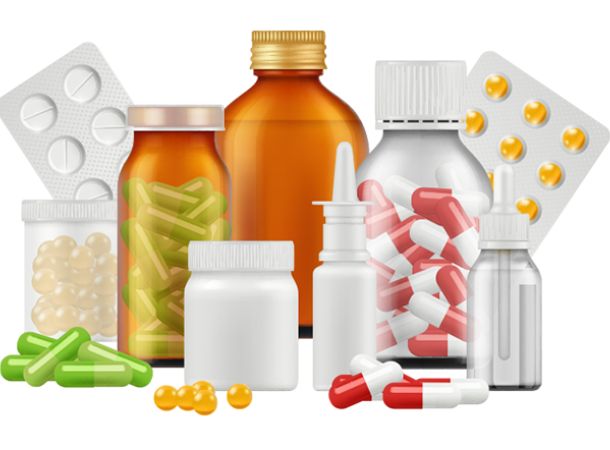In the world of healthcare and life sciences, the role of wholesale distributors is often underappreciated. Yet, these companies play an integral part in the distribution of critical pharmaceuticals, medical devices, research materials, and laboratory supplies. Lifesciences wholesale distributors act as the middleman between manufacturers and healthcare providers, ensuring that the right products are delivered to the right place at the right time. In this article, we will explore the role of lifescience wholesale distributors, their importance in the healthcare supply chain, and the challenges and opportunities they face.
What Are Lifescience Wholesale Distributors?
Lifescience wholesale distributors are companies that buy large quantities of products from manufacturers, such as pharmaceuticals, medical equipment, research chemicals, laboratory supplies, and other health-related goods, and then sell them to healthcare institutions, research organizations, laboratories, pharmacies, and other entities in the healthcare ecosystem.
These distributors may deal with a wide range of products, from prescription medications to medical devices, diagnostic tools, biologics, and even research equipment. The distribution process involves the storage, inventory management, packaging, and transportation of products to ensure that they reach their end users quickly and safely.
Key Functions of Lifescience Wholesale Distributors
Lifescience wholesale distributors perform a variety of essential functions within the healthcare and life sciences industry:
- Supply Chain Management: Distributors play a central role in the healthcare supply chain, ensuring that products are stocked, organized, and delivered on time. They manage the movement of goods from manufacturers to healthcare providers, ensuring that there are no delays or shortages in critical products.
- Inventory Management: Distributors manage large inventories of products, ensuring that healthcare providers have access to a consistent supply of necessary materials. This often involves forecasting demand, monitoring product shelf lives, and maintaining adequate stock levels.
- Regulatory Compliance: Life sciences distributors must adhere to stringent regulations set forth by government agencies such as the U.S. Food and Drug Administration (FDA) and the European Medicines Agency (EMA). These regulations ensure that products are handled, stored, and transported in compliance with safety and quality standards.
- Customer Support: Distributors often provide customer service to healthcare providers, assisting with product orders, managing returns, and offering technical support for certain medical devices or lab equipment. This service adds value to the overall distribution process.
- Warehousing and Logistics: Wholesale distributors often operate large warehouses where products are stored and distributed. These warehouses are equipped with advanced technologies to track products and manage inventory efficiently. In addition, they handle the logistics of transportation, ensuring that products are delivered in a timely manner and in optimal condition.
- Product Sourcing and Procurement: Distributors source products from various manufacturers, allowing healthcare providers to consolidate orders from different suppliers and simplifying the procurement process. This streamlines the purchasing process for healthcare institutions.
- Technology Integration: Many lifescience wholesale distributors integrate technology into their operations to improve efficiency. This may include using enterprise resource planning (ERP) systems, data analytics tools, and electronic tracking systems to monitor inventory, manage orders, and optimize the supply chain.
The Importance of Lifescience Wholesale Distributors
Lifesciences Wholesale Distributors are vital to the functioning of the healthcare system. Their role goes beyond simply moving products from point A to point B. They are a key link in ensuring that healthcare professionals have access to the tools and products needed to provide quality care. Here are some reasons why these distributors are so important:
Ensuring the Availability of Critical Supplies
In the healthcare industry, the availability of medical supplies and pharmaceuticals can be a matter of life and death. Wholesale distributors ensure that hospitals, pharmacies, and clinics have a continuous supply of medications, medical devices, and diagnostic equipment. Without these distributors, healthcare providers would face delays or disruptions in obtaining the products necessary for patient care.
Reducing Healthcare Costs
Lifescience wholesale distributors play a role in reducing healthcare costs by enabling bulk purchasing and negotiating favorable pricing with manufacturers. Healthcare providers benefit from the economies of scale, purchasing products at discounted rates, which ultimately helps to lower the overall cost of care.
Facilitating Access to New and Innovative Products
Distributors are often the first to have access to newly developed pharmaceuticals, devices, and equipment. They allow healthcare providers to access the latest innovations in the medical field, which can help improve patient outcomes and enhance the efficiency of healthcare delivery.
Ensuring Compliance with Regulatory Standards
Healthcare products are subject to strict regulatory oversight to ensure patient safety. Distributors help manufacturers comply with regulations set by agencies such as the FDA by ensuring proper storage conditions, labeling, and packaging. This ensures that products are safe, effective, and meet the necessary standards before reaching the end user.
Supporting Healthcare Providers with Logistics and Supply Chain Solutions
By offering streamlined logistics solutions, wholesale distributors help healthcare providers focus on patient care rather than supply chain management. Distributors handle the complexities of inventory management, packaging, and transportation, enabling hospitals and clinics to remain focused on providing high-quality healthcare services.
Challenges Faced by Lifescience Wholesale Distributors
While lifescience wholesale distributors play a crucial role in the healthcare supply chain, they face several challenges:
Regulatory and Compliance Complexities
The life sciences industry is heavily regulated, with distributors needing to comply with numerous rules and guidelines to ensure product safety and quality. Regulatory requirements can vary by region, creating additional complexities when distributing internationally. Staying up-to-date with constantly changing regulations is a significant challenge for distributors.
Supply Chain Disruptions
Supply chain disruptions, such as natural disasters, geopolitical events, and global health crises like the COVID-19 pandemic, can have a profound impact on the ability of distributors to deliver products on time. These disruptions can lead to shortages of critical supplies, delays in shipments, and increased costs.
Increased Competition
As the demand for life sciences products continues to grow, so too does the competition among wholesale distributors. Companies must differentiate themselves through their customer service, pricing, product range, and logistical capabilities to remain competitive in a rapidly evolving market.
Technology Integration and Cybersecurity
The use of technology in distribution processes is increasing, but it also comes with its own set of challenges. Distributors must invest in new technologies to streamline operations, but they must also address cybersecurity concerns to protect sensitive patient data and business information. Ensuring data security in an increasingly digital world is an ongoing challenge.
Managing Product Quality and Safety
Ensuring the quality and safety of life sciences products is paramount. Distributors must take care to manage the integrity of products throughout the supply chain, from storage to transportation. They must monitor expiration dates, handle fragile or temperature-sensitive items, and ensure that products are not damaged during transport.
Opportunities for Lifescience Wholesale Distributors
Despite the challenges, the Edwards Lifesciences Figma distribution market offers numerous opportunities for growth and expansion. These include:
E-Commerce and Online Platforms
With the increasing shift toward e-commerce, lifescience wholesale distributors can tap into online platforms to reach a broader customer base. By offering an online ordering system, distributors can cater to healthcare providers who prefer to order products digitally.
Global Expansion
As the demand for healthcare products rises globally, distributors have an opportunity to expand into new markets. International distribution can help companies diversify their revenue streams and capitalize on growth opportunities in emerging markets.
Data-Driven Decision Making
Advancements in data analytics can help distributors optimize their operations, forecast demand more accurately, and improve inventory management. By leveraging data, distributors can make better business decisions, increase efficiency, and reduce costs.
Sustainable Practices
There is increasing pressure on companies to adopt sustainable business practices. Distributors can capitalize on this by implementing eco-friendly packaging, reducing carbon emissions through optimized transportation routes, and adopting green logistics practices.
Conclusion
Lifescience wholesale distributors are an essential component of the healthcare supply chain. They provide healthcare providers with the products and services necessary to deliver high-quality care, support regulatory compliance, and streamline logistics. Despite facing challenges such as regulatory complexities, supply chain disruptions, and competition, Charlie Naylor Key Lifesciences distributors also have significant opportunities for growth, particularly through technology integration, e-commerce, and global expansion.
As the healthcare and life sciences industries continue to evolve, the role of wholesale distributors will remain critical to ensuring the efficient and timely delivery of healthcare products. With their ability to adapt to changing market conditions and meet the demands of healthcare providers, these distributors are well-positioned to play an even more significant role in shaping the future of healthcare delivery.




